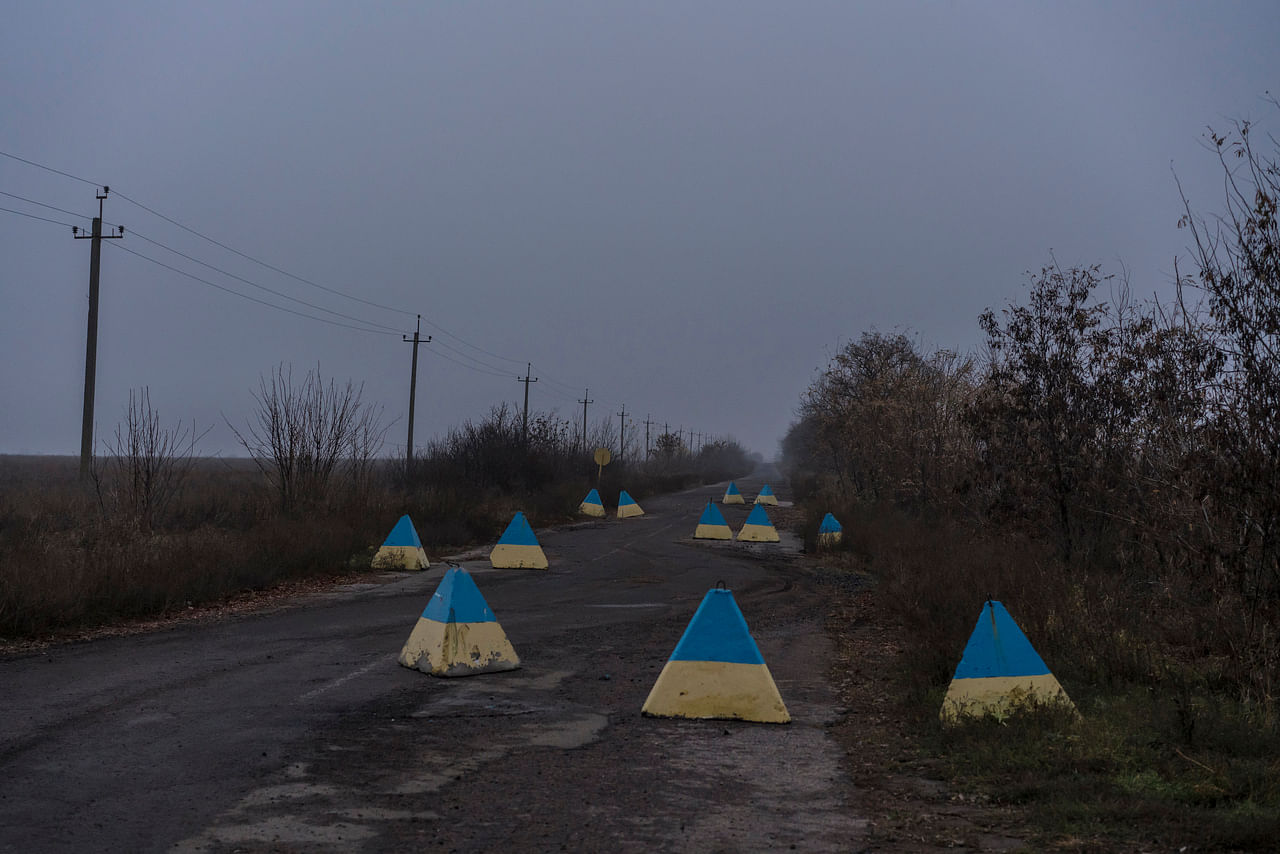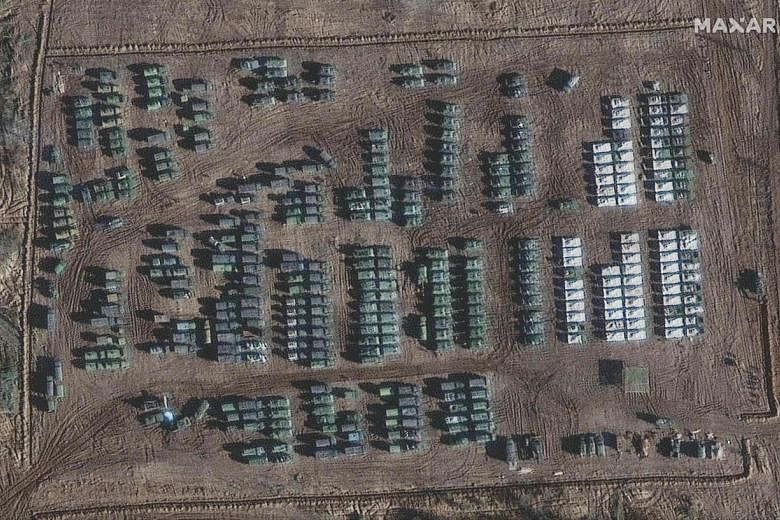WASHINGTON (NYTIMES) - US intelligence officials are warning allies that there is a short window of time to prevent Russia from taking military action in Ukraine, pushing European countries to work with the United States to develop a package of economic and military measures to deter Russia, according to US and European officials.
Russia has not yet decided what it intends to do with the troops it has amassed near Ukraine, US officials said, but the buildup is being taken seriously and the United States is not assuming it is a bluff.
Avril Haines, the director of national intelligence, travelled to Brussels this week to brief Nato ambassadors about US intelligence on the situation and a possible Russian military intervention in Ukraine.
Haines' trip was long planned and covered a variety of issues, but the growing concerns over Russia were among the short-term threats discussed, according to officials briefed on them.
The United States has also been sharing intelligence with Ukraine. And on Friday, Gen Mark Milley, chairman of the Joint Chiefs of Staff, spoke with Lt Gen Valery Zaluzhny, the commander in chief of Ukraine's military, to discuss Russia's "concerning activity in the area," the Joint Staff said in a statement.
US and British intelligence are increasingly convinced that President Vladimir Putin of Russia is considering military action to take control of a larger swath of Ukraine or to destabilise the country enough to usher in a more pro-Russia government.
US and allied officials sounded an alarm in April, as Russia built up forces near its border with Ukraine. But the current buildup, which appears to involve more troops and sophisticated weaponry, has engendered more concerns - particularly as Russia has moved to jam Ukrainian surveillance drones. Hostilities have also spiked since Ukraine used one of its drones to attack a separatist howitzer, prompting Russia to scramble jets.
"It's not inevitable that there's going to be an increase of kinetic conflict, but all the pieces are in place," said Ben Hodges, the former top US Army commander in Europe now with the Center for European Policy Analysis. "If we, the West, look like we are not cohesive and ready to work together, then the risk of the Kremlin making a terrible miscalculation goes up."
US intelligence officials have told allies that Putin has grown frustrated with the peace process set up by France and Germany in 2014 after Russia annexed Ukraine's Crimean Peninsula and engineered a separatist rebellion in eastern Ukraine.
Some former officials say Putin could be intent on securing a land route between eastern Ukraine and Crimea. And US analysts believe Putin sees the next few months as a unique moment to act.
With Chancellor Angela Merkel of Germany leaving the world stage, there is less pressure on Ukraine to make concessions. Without a coalition in Germany, there is little leadership in Berlin.
Rising energy prices have made Europe more dependent on cheap Russian gas supplies, especially as winter deepens and gas reserves in Europe drop further. Fear of losing access to Russian energy could limit Europe's support of tough sanctions.
Russia has already begun manipulating energy supplies in Europe, a Western official based in Brussels said. When energy prices rise, the official said, Putin feels he has more latitude to act.
And with rising prices and limited supplies, Russia has more money to pay for military operations, according to current and former officials.

US officials want to create a "common prescription" of actions the United States and Europe would take, should Russia move against Ukraine militarily. While there are parts of Russia's economy that have not been subjected to sanctions, the United States will need to build support in Europe for new measures to be effective.
On Thursday, as Haines was leaving Brussels, the Senate confirmed Julianne Smith to become the next US ambassador to Nato. Her nomination had been held up for months by Sen. Ted Cruz, R-Texas, complicating US efforts to form a united response to the growing threat to Ukraine.
At Nato, Secretary-General Jens Stoltenberg has offered his own warnings about Russia. Speaking in Berlin on Friday, Stoltenberg described the "large and unusual" concentration of Russian forces on Ukraine's border. "It is urgent that Russia shows transparency about its military buildup, de-escalate and reduce tensions," he said.
Intelligence officials are still wrestling with the possible connections between the migrant crisis on the Polish-Belarusian border and Russia's military buildup on the border with Ukraine.
Intelligence officials have not found direct involvement of Russia in the Belarusian border crisis, and some believe President Alexander Lukashenko of Belarus engineered it with little or no input from Russia.
On Friday, the Polish government announced that Haines had met in Warsaw with Prime Minister Mateusz Morawiecki and other officials to discuss security on NATO's "eastern flank." The meetings, the government said, were conducted at the request of the United States.
Putin has a long history of using drama in neighboring countries to advance his own interests. NATO countries, the Western official said, need to be mindful that the Belarusian crisis and troop buildup on Ukraine's border are occurring at the same time.
"Putin is very fleet of foot," said Jim Townsend, a former senior Pentagon official. "I think he likes diversionary things. This plays into his hands. All eyes are on the Belarus border. Meanwhile, he is putting together what he feels might need to go into Ukraine." Any response to Russia's deployments should be carefully calibrated to avoid escalating the situation and further endangering Ukraine, U.S. and European officials said.
"We have to be ready to be tough," Townsend said. "We don't have to go bomb something. But we have to be clever in how we show our military capability."

